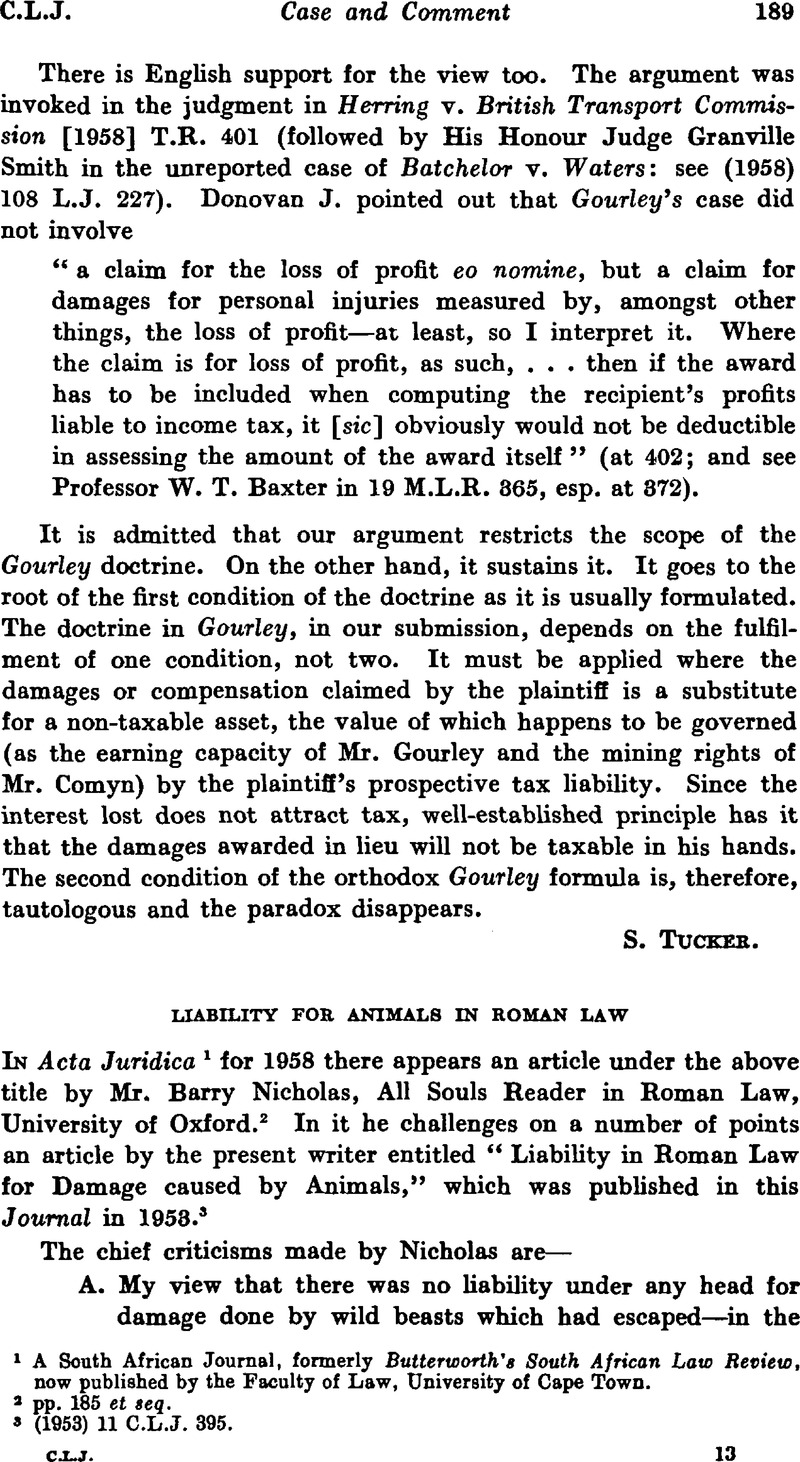Article contents
Liability for Animals in Roman Law
Published online by Cambridge University Press: 16 January 2009
Abstract

- Type
- Case and Comment
- Information
- Copyright
- Copyright © Cambridge Law Journal and Contributors 1959
References
1 A South African Journal, formerly Butterworth's South African Law Review, now published by the Faculty of Law, University of Cape Town.
2 pp. 185 et seq.
3 (1953) 11 C.L.J. 395.
4 “Escaped” should be interpreted as meaning “ceased to be owned.” A bear can get out of its cage or slip its chain and yet be owned, not having regained its naturalis libertas: G.II.67.
5 I regard Nicholas' use of the words “keeping” and “keep” as misleading. They at least suggest an element of permanence, as if, for instance, the owner stabled his beast in the street. The beast would probably be merely in transitu. Habere of itself means to own or control rather than to keep.
6 See note 4, supra.
7 IV. 9pr. & 1.
8 D. 21.1.40.1 and 42; Paul, Sententiae, 1.15.2.
9 Acta Juridica (1958) p. 186Google Scholar and texts there cited.
10 See G.II.67 referred to in note 4, supra.
11 D.21.1.41.
12 (1953) 11 C.L.J. p. 402.
13 Acta Juridica (1958) p. 186Google Scholar, n. 11. Incidentally I accept Nicholas' view that D.21.1.43pr. relates to vitia which the Aediles required to be declared by sellers.
14 Acta Juridica (1958), p. 187.Google Scholar
15 Ibid.
16 Ibid., p. 190.
17 Ibid., p. 188.
18 (1953) 11 C.L.J. 396.
- 1
- Cited by


